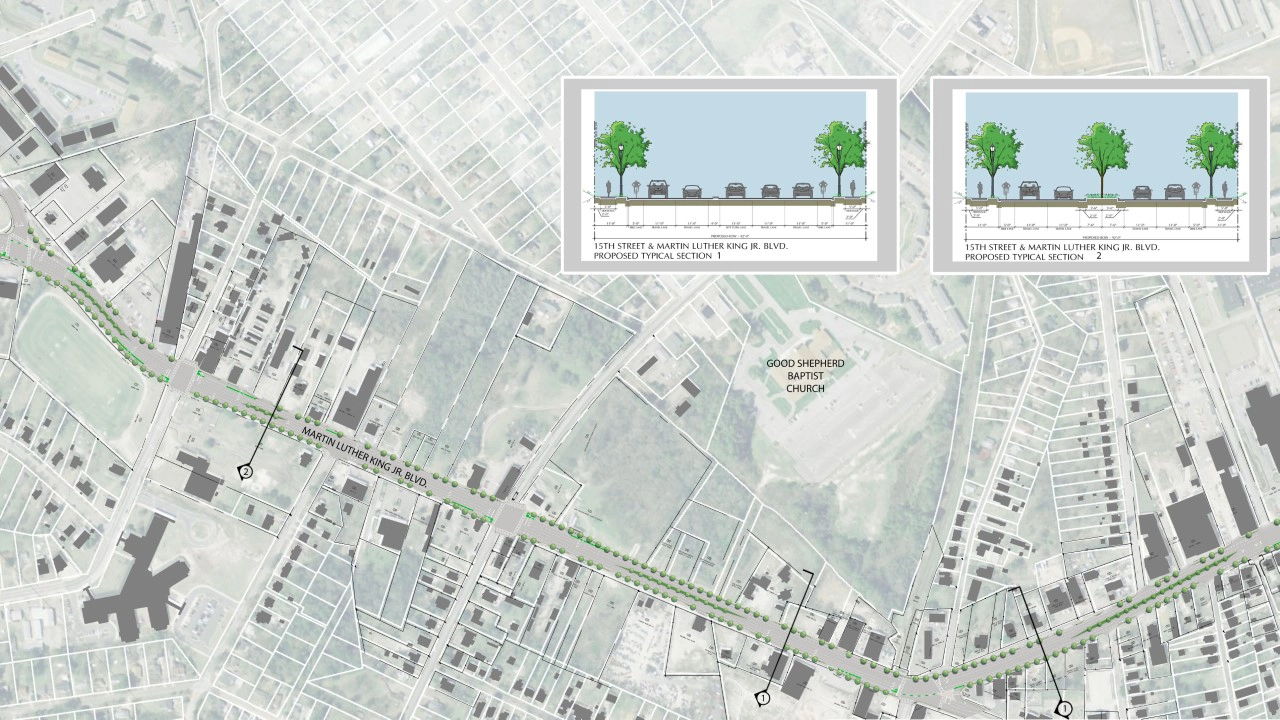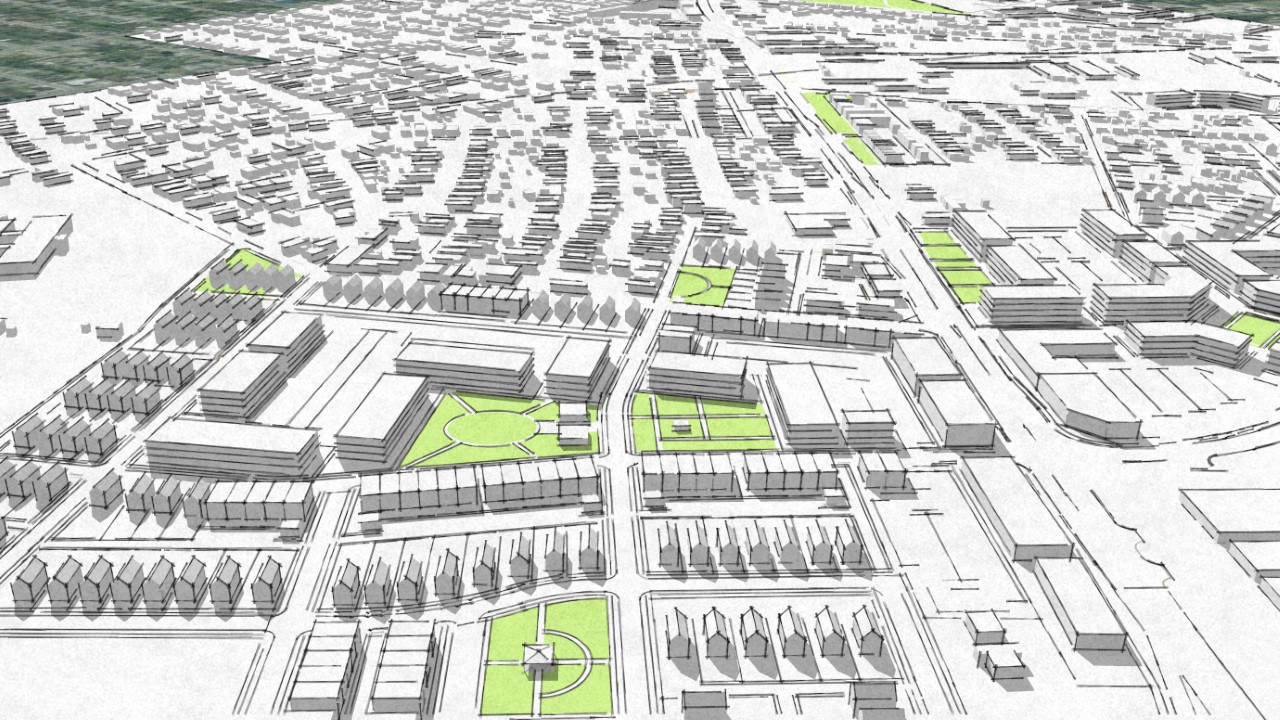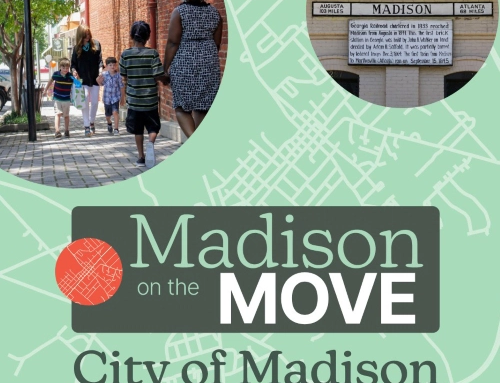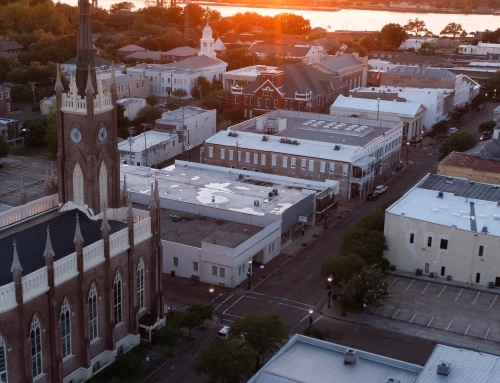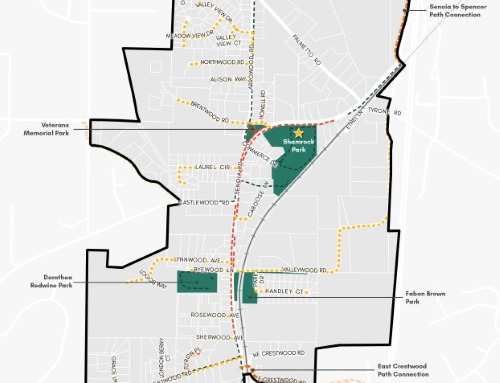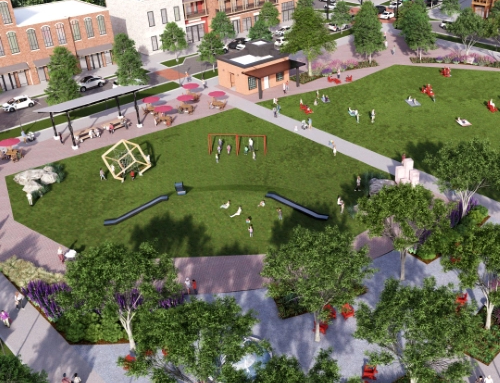Details:
Highlights:
Description:
TSW’s landscape architecture studio, led a consultant team to develop a detailed corridor plan and implementation program for the City of Augusta, Georgia, that follows HUD guidelines and Livability Principles. The corridor is a 4.5-mile north-south “spine” in the core of the city, which runs from downtown to the vacant Regency Mall area along 15th Street, Martin Luther King Jr. Boulevard, and Deans Bridge Road.
The project entails four interrelated initiatives:
- Creating a detailed plan and implementation program for a cluster of transit-oriented development neighborhoods along the corridor
- Developing a detailed plan for a multi-modal transportation corridor
- Revising current codes to facilitate higher-density, mixed-use, and mixed-income development
- Creating an implementation plan for green, affordable housing in the corridor
As part of the initiative for the Augusta 15th Street Corridor project of a multi-modal transportation corridor, the TSW Team developed recommendations to support a balanced transportation system along 15th Street corridor area as part of the GDOT Widening Project (PI# 220680). The recommendations included the addition of a bicycle lane, mid-block crossing, covered bus stops, multi-use trail, intersection improvements, and proposed raised medians. These recommendations were aimed at improving the transportation infrastructure in the corridor, making it more accessible and convenient for the residents of the area.
The TSW Team also developed a detailed plan for the development of a cluster of transit-oriented development neighborhoods along the corridor. The plan includes recommendations for high-density, mixed-use and mixed-income development, which will help to create a vibrant, livable community in the corridor. Additionally, the team also created an implementation plan for green, affordable housing in the corridor. This will ensure that the residents of the area will have access to high-quality, sustainable housing options.
Overall, TSW’s approach to the corridor plan and implementation program for the City of Augusta was to create a sustainable, livable community that is accessible and convenient for the residents of the area. The team’s recommendations for transportation infrastructure and housing development will help to achieve this goal, and their efforts to revise current codes to facilitate higher-density, mixed-use, and mixed-income development will help to create a vibrant and sustainable community in the corridor.

